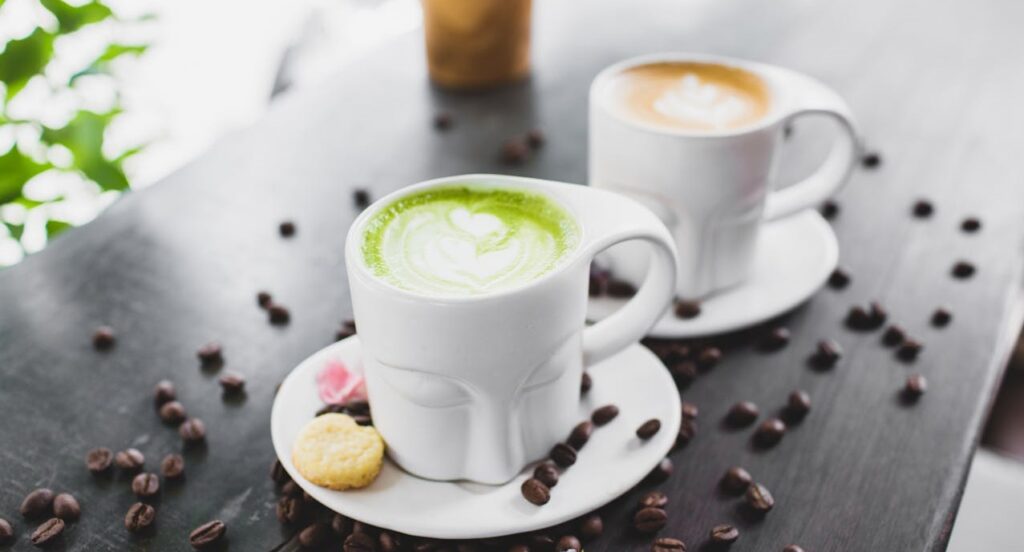By Joseph Staples
NEWS COPY W/ VIDEO + INFOGRAPHIC
Your entire lifestyle can likely be summed up by what you drink in the morning, according to a new study.
In a poll of 2,000 US adults, split between 1,000 coffee drinkers and 1,000 matcha drinkers, a number of personality and lifestyle differences — and a few surprising similarities — were observed based on their preferred a.m. beverage.
If you are a matcha drinker, you are more likely to wake up early (54%), prefer outdoor activities (26%), be an ambivert, or a balance of introvert and extrovert (46%), and describe yourself as “adventurous” (29%).
Commissioned by Califia Farms and conducted by OnePoll, the study found, by comparison, more than half of coffee drinkers prefer to sleep in later (53%), prefer indoor activities like watching movies (38%), and are more likely to be an introvert (42%).
Four in five (81%) from both groups exercise on a regular basis — though matcha drinkers tend to work out more frequently than their coffee-drinking counterparts (four times per week, compared to three).
Of those who exercise on a regular basis: early-rising matcha drinkers were most likely to break a sweat in the morning hours (42%) vs. afternoon or evening, while coffee drinkers prefer to wait until the afternoon (39%).
When it comes to astrology, matcha drinkers are more likely to be fire signs, such as an Aries, Leo and Sagittarius, (27%) – or water signs, such as a Cancer, Scorpio and Pisces (26%).
Meanwhile, earth signs, like Taurus, Virgo and Capricorn and air signs, like Libra, Aquarius and Gemini were more prone to drink coffee (27%).
Despite several differences between matcha and coffee drinkers, both enjoy being their own baristas, with almost three-quarters (74%) of coffee drinkers and two-thirds (66%) of matcha drinkers preparing their beverage at home.
Coffee drinkers were also found to take slightly less time making their cup. It took the average coffee drinker four minutes to make their cup, compared to matcha drinkers who took five minutes.
While matcha drinkers spent more time preparing their morning beverage, they reported spending less time overall getting ready for the day, i.e. showering, bathing, brushing teeth (27 minutes on average vs. 30 minutes for coffee drinkers).
“There are no wrong answers in a study like this, and it’s fun to see the differences in the way people approach their day,” said Suzanne Ginestro, chief marketing officer at Califia Farms. “For those who drink matcha, even though we found they are typically getting up earlier, they don’t always have five minutes to spare to whip up their matcha. Luckily, we have a quick and easy way for those who want to be able to pour their perfect matcha and go.”
The study also revealed more insights linked to people’s preference for their morning beverage.
Both coffee and matcha drinkers agreed it’s important to them that they stay on top of new and upcoming trends, but the latter were much more “in tune” with what’s trending on social media (62%, compared to 47% of coffee drinkers).
Matcha drinkers might be the more socially savvy of the two, but they are also the bigger bookworms, reading about six books per year for fun, versus only about four for coffee drinkers.
Both groups do come to the table on some things, however. Both coffee and matcha drinkers like hanging out with friends and family on the weekends (34%), playing video games (13%) and enjoying “massive” breakfasts (7%). They both spend between $5-$10 per week or $260 - $520 per year on their preferred beverage.
And when exercising, both groups listed their favorite workouts as cardio (33%), weight training (14%) and yoga (13%).
Survey methodology:
This random double-opt-in survey of 2,000 Americans, split between 1,000 who drink coffee and 1,000 who drink matcha was commissioned by Califia Farms between Feb. 12 and Feb. 26, 2024. It was conducted by market research company OnePoll, whose team members are members of the Market Research Society and have corporate membership to the American Association for Public Opinion Research (AAPOR) and the European Society for Opinion and Marketing Research (ESOMAR).
